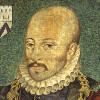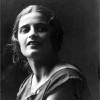“ Happiness is the condition of a rational being in the world with whom everything goes according to his wish and will ”
Immanuel Kant, Critique of Practical Reason (1788). copy citation
| Author | Immanuel Kant |
|---|---|
| Source | Critique of Practical Reason |
| Topic | happiness world |
| Date | 1788 |
| Language | English |
| Reference | |
| Note | Translated by Thomas Kingsmill Abbott |
| Weblink | http://www.gutenberg.org/cache/epub/5683/pg5683-images.html |
Context
“in other words, it must postulate the existence of God, as the necessary condition of the possibility of the summum bonum (an object of the will which is necessarily connected with the moral legislation of pure reason) . We proceed to exhibit this connection in a convincing manner.
Happiness is the condition of a rational being in the world with whom everything goes according to his wish and will; it rests, therefore, on the harmony of physical nature with his whole end and likewise with the essential determining principle of his will. Now the moral law as a law of freedom commands by determining principles, which ought to be quite independent of nature and of its harmony with our faculty of desire”
source



